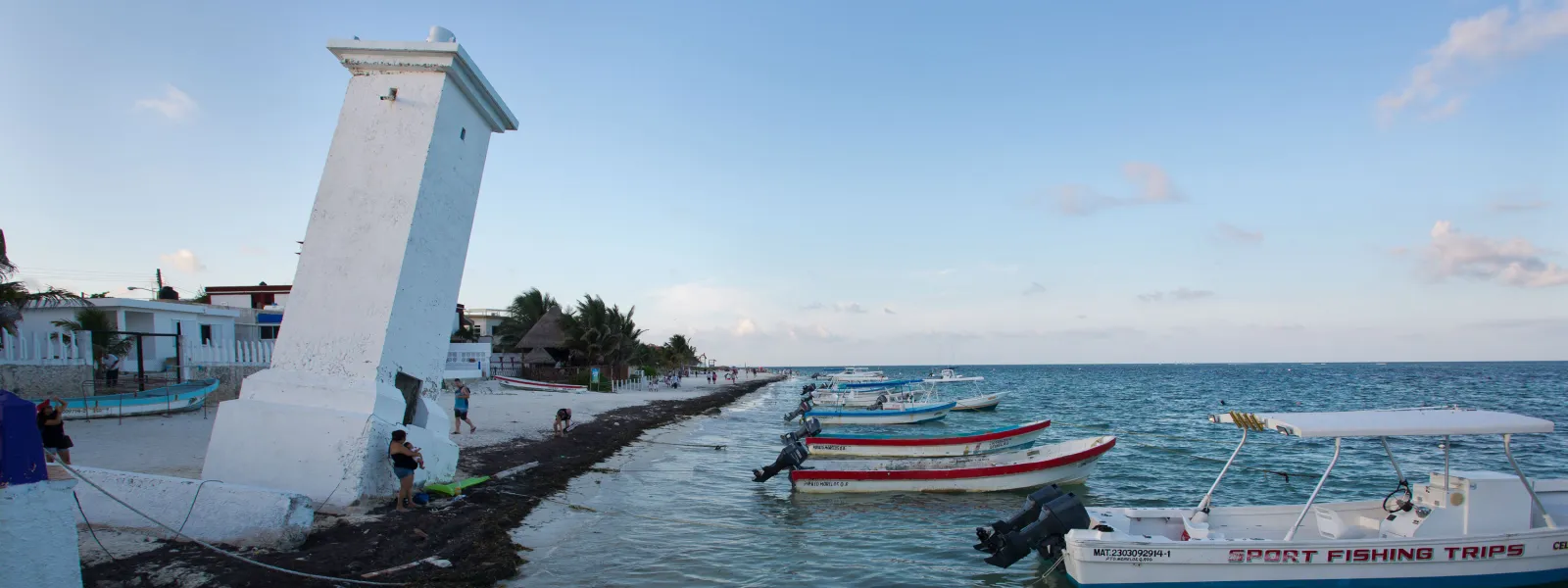
Mandan alerta internacional por riesgos graves al arrecife de Puerto Morelos
Foto: Didrik Johnck / Flickr.Organizaciones de la sociedad civil solicitaron a la Secretaría de la Convención Ramsar, tratado intergubernamental, una visita al Parque Nacional Arrecife de Puerto Morelos, área natural protegida y Humedal de Importancia Internacional bajo Ramsar, amenazado seriamente por actividades turísticas masivas y no sostenibles.
La Asociación Interamericana para la Defensa del Ambiente (AIDA) —con apoyo del Centro Mexicano de Derecho Ambiental (CEMDA), Voces Unidas, la Casa de la Cultura de Puerto Morelos, Flora y Fauna de México y el Centro de Innovación e Investigación para el Desarrollo Sustentable— presentó una alerta urgente ante la Convención Ramsar, tratado intergubernamental para la protección de humedales. En ella solicita una visita de expertos al Parque Nacional Arrecife de Puerto Morelos (PNAPM) para que evalúen los riesgos que el sitio enfrenta a causa del turismo masivo no sostenible.
“Existen en el lugar proyectos inmobiliarios turísticos que, al no haber sido sometidos a una evaluación de impacto ambiental seria y rigurosa, han transformado el territorio costero, degradando y contaminando ecosistemas, en especial arrecifes de coral y manglares”, explicó Sandra Moguel, Directora Regional de la oficina Sureste del CEMDA.
El PNAPM fue creado como área natural protegida en 1998 y fue registrado como Humedal de Importancia Prioritaria Internacional, bajo la Convención Ramsar, en 2004. Es un sitio único debido a su alta biodiversidad. Sus arrecifes de coral son hábitat de peces, tiburones, caracoles rosados y tortugas marinas; mientras que sus manglares albergan a cocodrilos y garzas. Y, como otros humedales, evita la erosión costera y es fuente de crianza y alimentación para peces para la zona.
“La belleza ecológica y escénica del lugar atrae la construcción de proyectos turísticos que, al no ser evaluados de manera adecuada, promueven un modelo depredador de uso irracional de los recursos naturales”, dijo Camilo Thompson, abogado del Programa de Biodiversidad Marina y Protección Costera de AIDA. “Urge una misión de Ramsar que evalué los daños, proponga compensaciones, exprese sus recomendaciones y emita un informe sobre la política de crecimiento inmobiliario-turístico y las alternativas para asegurar el uso racional de los ecosistemas que hacen la Parque”.
El Arrecife de Puerto Morelos forma parte del Sistema Arrecifal Mesoamericano, considerado como la segunda barrera arrecifal más grande del mundo.
“Cualquier actividad desarrollada en el lugar requiere una evaluación ambiental estratégica que considere los impactos acumulativos y sinérgicos en los humedales costeros, los pastos marinos y los arrecifes de Puerto Morelos”, agregó Thompson. “El Estado mexicano debe aplicar el enfoque precautorio y ecosistémico ante las amenazas y riesgos a la biodiversidad de este sitio único”.
Consulte y descargue la alerta presentada ante la Convención Ramsar.
